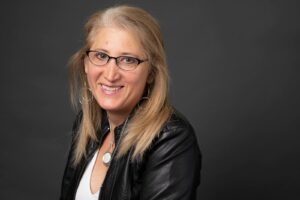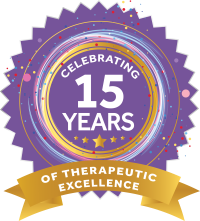 Continuing our 2-part series on emotional distress, author and life coach Cathy Hartenstein educates readers about mental/emotional challenges. The cycle of experiencing trauma, forming beliefs, and telling yourself stories can be challenging to overcome. Once you begin to understand it, it frees you to choose new ways to process challenges, alleviate emotional distress, and heal your life.
Continuing our 2-part series on emotional distress, author and life coach Cathy Hartenstein educates readers about mental/emotional challenges. The cycle of experiencing trauma, forming beliefs, and telling yourself stories can be challenging to overcome. Once you begin to understand it, it frees you to choose new ways to process challenges, alleviate emotional distress, and heal your life.
What causes beliefs
In order to process our trauma we form a belief. Beliefs come from the conclusions we draw from our life experiences.
“Beliefs are our brain’s way of making sense of and navigating our complex world. They are mental representations of the ways our brains expect things in our environment to behave, and how things should be related to each other—the patterns our brain expects the world to conform to.*”
Beliefs come from traumatic experiences, life lessons, inherited ideas, and unconscious modeling. We can either form positive or negative beliefs. Negative ingrained beliefs contribute to and exacerbate our emotional distress. Core negative beliefs are:
- I am not loved
- I am not worthy
- I am not safe
When these beliefs are triggered, we experience emotional distress.Read part 1, The Root Causes Of Emotional Distress
Forming beliefs
Drawing conclusions from trauma
When we have a traumatic experience, we are thrown into a situation where we are terrified and unprepared. During this time, we draw conclusions about ourselves, the world we live in, and our general well-being. These conclusions become beliefs and get embedded into our subconscious. We use these conclusions and beliefs to protect ourselves in the future if this situation happens again.For example, if we are rejected, we might form the conclusion “something is wrong with me” or “I’m not lovable”.If we are attacked or put in physical danger, we might conclude, “I am not safe”.If we are betrayed, “I can’t trust anyone”, and so on.These conclusions become ingrained in our subconscious and then inform how we navigate our lives and make decisions.Beliefs are not formed from the trauma itself, but by the conclusions we draw from it. Therefore, if several people experience the same trauma, they will all draw their own conclusions and form their individual beliefs.
Forming beliefs from life lessons
We also form beliefs based on our life lessons. Our powerful learning experiences are stored in our subconscious minds so that we don’t have to relearn them. This is our implicit memory where we store how to walk, talk, and how to do our essential everyday activities as well as any important life lessons that we need to function and survive.When we have difficult compounded learning experiences, these become foundations for our negative beliefs. Throughout our life we continually formulate additional subconscious programs based on life experiences.Powerful suggestionsPeople are often influenced by powerful suggestions, which can create negative beliefs. What is said to us goes directly into our subconscious when we are in an altered state. We find ourselves in this altered state when in the presence of powerful people. Their words can either support or damage us.Examples of powerful people are doctors, teachers, parents, and peers. Depending on their influence we can form beliefs accordingly. For example:
- from doctors we can form beliefs about our well-being
- from teachers, beliefs about our intelligence
- from parents, our safety and self worth, etc.
Inherited ideasBeliefs can also be inherited. We inherit beliefs from our ancestors’ past traumas, our cultural upbringing (religion, nationality, etc), and our parents’ and societies’ established belief system. Sometimes we physically inherit experiences. A person’s traumatic experiences can leave a chemical mark on a person’s genes, which can then be passed down to future generations.Unconscious modeling causes beliefsWhen we admire someone, we tend to internalize their behaviors and their inner beliefs. If our parents are confident, we model their behavior and have confidence. If our parents feel victimized, we model their behavior and feel victimized. People model/copy what they see in the people they look up to.Over our lifetime we accumulate negative beliefs from these experiences. Then we assign meaning to them which becomes a story that we create and let define our experiences in life.How stories shape our experienceStories are the meaning we assign to the events in our lives. The mind works like a big database constantly gathering information and storing it. When it receives new information it deduces what it is, assigns meaning, and creates a story.Once we have developed a story, we begin to look for evidence in our life to support that story. If it is a negative experience, we tend to create a negative story. Our stories become our reality and perpetuate our negative beliefs. This makes it difficult to let go of our past experiences and forge new more positive habits and opportunities. This limits our ability to create positive outcomes and keeps us trapped in negative cycles that cause our emotional distress.This cycle of trauma, belief, and story can be challenging to overcome, but once you begin to understand it, it frees you to choose new ways of processing challenges, alleviate emotional distress and heal your life.
How to handle emotional distress
Most importantly, it is imperative to recognize what trauma is at the root cause of the emotional distress, what belief you have formed because of that trauma, and the story you associate with it.To find stability we need to address the underlying trauma, shift the beliefs, eliminate the stories, and get back to our healed, whole self to re-integrate long held patterns in more positive ways.One of the very best ways to alleviate emotional distress is to practice self-compassion and acceptance. If we trace our conditioned emotional responses to the original trauma and give that part of ourself that experienced that trauma compassion and love, we can release the trauma and heal our negative experiences so that we won’t be in a constant cycle of emotional reactivity. Then we can experience life with ease and happiness.*https://www.psychologytoday.com/us/blog/finding-purpose/201810/what-actually-is-belief-and-why-is-it-so-hard-change
Mental Health Programs for Schools
 E-therapy’s new eQUIP Mental Health Programs are designed to equip students, educators, and your school community with skills and knowledge to address today’s critical mental health crisis. Learn more about eQUIP and our professional development options.
E-therapy’s new eQUIP Mental Health Programs are designed to equip students, educators, and your school community with skills and knowledge to address today’s critical mental health crisis. Learn more about eQUIP and our professional development options.
About the Author
 Cathy Hartenstein is a Life Coach, EFT/Matrix Re- imprinting, and NLP Practitioner who is dedicated to helping people create more bliss in their lives and realize their highest potential. By constantly investigating what drives us, why we do the things we do, and searching for the beauty that she sees in humanity, she empowers people to release old trauma and live their best life. She has a strong background leading groups to realize their creative vision, having been actively involved in arts and education for over 3 decades as an international theatre artist, theatre professor at many prestigious universities, and workshop facilitator. In her work she strives to help her clients reconnect to themselves and overcome their personal obstacles to realize their greatest potential. Find Cathy at Create More Bliss.
Cathy Hartenstein is a Life Coach, EFT/Matrix Re- imprinting, and NLP Practitioner who is dedicated to helping people create more bliss in their lives and realize their highest potential. By constantly investigating what drives us, why we do the things we do, and searching for the beauty that she sees in humanity, she empowers people to release old trauma and live their best life. She has a strong background leading groups to realize their creative vision, having been actively involved in arts and education for over 3 decades as an international theatre artist, theatre professor at many prestigious universities, and workshop facilitator. In her work she strives to help her clients reconnect to themselves and overcome their personal obstacles to realize their greatest potential. Find Cathy at Create More Bliss.
